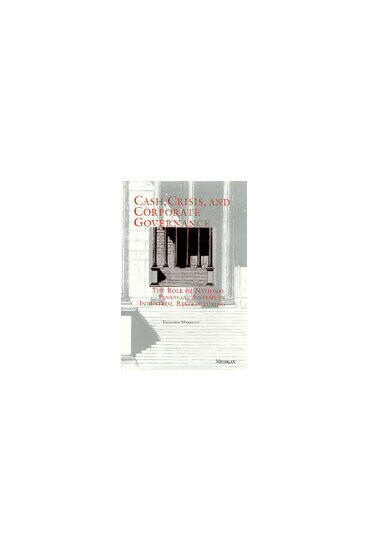Cash, Crisis, and Corporate Governance
The Role of National Financial Systems in Industrial Restructuring
A "bottom-up" perspective on government-industry relations focusing on the government's role in restructuring industry in Europe and the U.S.
Description
This study chronicles four large manufacturers during a period of crisis and restructuring when they needed vast sums of money just to survive- let alone adapt to remain competitive. By focusing on how these firms found financing, Victoria Marklew shows that the way national financial systems channel money to industry is the key issue in industrial competitiveness.
The author challenges the traditional approach in comparative political economy by starting her analysis of government-industry relations at the level of the firm. By so doing, the author is able to chart in a unique way the role governments play in setting the boundaries of financial systems and to show how these boundaries fundamentally determine the kinds of financing to which a firm has access.
The case studies (comparing the British Steel Corporation's passage from state to private ownership, the French steel industry's evolution into the nationalized Usinor Sacilor, British Leyland's transition from a nationalized company to two privately-owned firms, and Peugeot SA's rise to a dominant firm in the French private sector) dramatically prove that whether ownership is public or private has little to do with a firm's ability to survive a crisis. By extending her arguments to the United States, Germany, and Japan, the author shows how apparently very different governments in fact behave remarkably similarly, highlighting more accurately where the key differences among them lie and what the consequences of these differences are.
Victoria Marklew holds a Ph.D. in Political Science from the University of Pennsylvania and is an International Economist for the Northern Trust Company, Chicago.
Victoria Marklew holds a Ph.D. in Political Science from the University of Pennsylvania and is an International Economist for the Northern Trust Company, Chicago.

